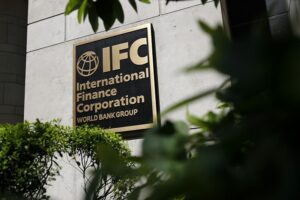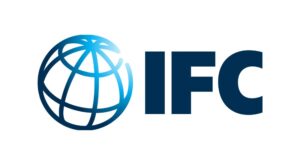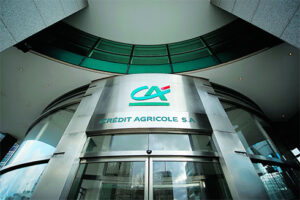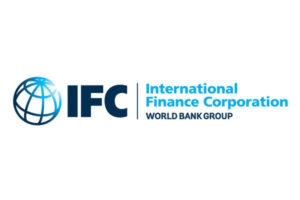
The International Finance Corporation (IFC), a member of the World Bank Group, will acquire a stake in Knyazha Vienna Insurance Group (Knyazha VIG) and Ukrainian Insurance Group (USG) (both based in Kyiv), owned by Vienna Insurance Group (VIG), through a capital increase.
According to a press release from Knyazha VIG, subject to regulatory approvals, IFC will acquire approximately 20% in each of the two VIG companies, USG and Knyazha VIG.
The relevant agreement has been signed by IFC, VIG Holding, and the two Ukrainian companies.
“Thanks to the support and extensive expertise of IFC as a key partner, VIG plans to promote the development of the Ukrainian insurance market and further strengthen its position in Ukraine. IFC will provide support in the development of new products, sales development, and digitalization,” the statement said.
In addition, it is noted that with the support of the IFC, the companies plan to expand their product portfolio and accelerate digitalization. Building on its existing partnership with AON and Lloyd’s, VIG also intends to play an active role in the reconstruction of Ukraine after the end of the war.
“We have been working with the IFC since the end of 2022, when they acquired a stake in our Bulgarian pension fund Doverie. In Bulgaria, the main focus is on developing the pension business. In Ukraine, however, expanding insurance coverage is key to the country’s future reconstruction. Together with the IFC and our existing partners AON and Lloyd’s, we are preparing to play an active role in the country’s renewal process,” emphasized Peter Göflinger, Deputy CEO of Vienna Insurance Group.
According to Harald Riener, member of the Vienna Insurance Group’s Executive Board responsible for the Ukrainian market, Ukraine is and will remain part of VIG’s key market in Central and Eastern Europe.
“We are extremely proud of the resilience of our Ukrainian colleagues, whose unwavering dedication ensures the stability and profitability of companies even in the difficult conditions of war. Together with IFC, we are combining the experience of our teams and partners to offer highly sought-after insurance solutions for the country’s reconstruction after the end of the war, which we all sincerely hope for,” he said.
VIG has been operating in Ukraine for 21 years. The company currently ranks second in the market with an 11% share. Three VIG companies in Ukraine — USG, Knyazha VIG, and Knyazha Life VIG — achieved insurance premiums of EUR128 million in 2024.

The International Finance Corporation (IFC), part of the World Bank Group, will contribute $25 million to the Rebuild Ukraine Fund LP (REBUF) private equity fund, which was launched a year ago by leading Ukrainian investment group Dragon Capital.
According to the IFC website, its board of directors approved the project at a meeting on November 3.
The corporation specified that REBUF is focused on small and medium-sized enterprises, has a target size of $250 million, and is a universal fund that focuses on consumer goods and services, healthcare, pharmaceuticals, financial services, agriculture-related sectors, construction materials, retail, and technology.
“The fund aims to acquire controlling stakes through buyout or growth capital strategies in mature companies,” the IFC added.
According to the materials, the investment will be backed by a first-loss guarantee of 50% of its amount, supported by France and other guarantors.
As the corporation noted, its contribution as an anchor investor will be crucial in supporting the fund in achieving its first closing in a challenging fundraising environment. The IFC recalled that since Russia’s full-scale invasion of Ukraine, only one private equity fund has been launched, and its successful closing required significant support from development finance institutions (DFIs), including the anchor role of the IFC (the $350 million Horizon Capital Growth Fund IV – IF-U). REBUF is expected to require similar support and will be financed primarily by DFIs, according to published materials.
Andriy Nosok, managing director and head of direct investments at Dragon Capital, announced at the Ukraine Recovery Conference in Rome in July that the company would invest $20 million of its own funds in REBUF. In addition, the European Bank for Reconstruction and Development approved a decision to contribute $25 million to the fund in early July. According to Nosok, the first closing of the fund was planned for September this year.
He recalled that Dragon Capital has been investing in private equity in Ukraine for 25 years, including managing direct investment funds since 2010. REBUF is the third such fund, which follows the same strategy as the previous ones. According to the REBUF presentation, the size of investments in companies is $7-30 million.
Dragon Capital is one of the largest investment groups in Ukraine in the field of investment and financial services, providing a full range of investment banking and brokerage services, direct investments, and asset management for institutional, corporate, and private clients. The company was founded in 2000 in Kyiv. According to founder and CEO Tomas Fiala, the group’s investment portfolio currently includes nearly 50 different companies or real estate projects. Between 2015 and 2021, the company invested approximately $700 million in Ukraine, excluding reinvestments, and plans to invest $100 million in 2025.
As reported, the EBRD and IFC also plan to contribute EUR60 million and EUR40 million, respectively, to the capital of the new Amber Dragon Ukraine Infrastructure Fund I with a declared target size of EUR350 million. The EBRD Board of Directors will consider this project on December 3. The European Investment Bank (EIB) already approved a contribution of EUR40 million to this fund at the end of September.

The International Finance Corporation (IFC) will invest in the capital of Ukrainian insurance companies, which is a powerful signal for Ukrainian insurers and international companies.
This was discussed at a meeting between the leadership of the National Bank of Ukraine and World Bank President Ajay Banga and Managing Director of Operations Anna Bjerde, according to the NBU’s Facebook page.
It was emphasized that additional investment opportunities will be created with the help of MIGA (Multilateral Investment Guarantee Agency), which provides guarantees for financing.
In addition, the meeting discussed further financial support for Ukraine, strengthening energy security, and increasing the country’s investment potential through the introduction of new financial instruments.

The International Finance Corporation (IFC) will cover the risks of Credit Agricole Bank (Kyiv) for EUR 100 million on new business loans in various sectors of the economy – agribusiness, manufacturing, energy and logistics, as well as to support Ukraine’s energy security.
According to the bank’s website, a EUR 100 million risk-sharing agreement to boost lending to medium and large businesses in the agribusiness, manufacturing, energy and logistics sectors, as well as to support energy security, was signed on July 11, 2025.
About 30% of the loan funds are planned to be used to finance small-scale renewable energy projects, the implementation of climate-smart solutions in agriculture, and energy efficiency measures.
The program is being implemented with the financial support of the French government, the Foreign and Commonwealth Office, and the UK Department for International Development under the World Bank Group’s Guarantee Facility.
According to the National Bank of Ukraine, as of April 1, 2025, Credit Agricole Bank ranked 11th in terms of total assets among 60 banks in the country – UAH 119.6 billion, or 3.2% of the market.

Agro-industrial holding Astarta, Ukraine’s largest sugar producer, and the International Finance Corporation (IFC) have signed a $40 million loan agreement to build Ukraine’s first soy protein concentrate plant, the agro-industrial holding’s press service said on Facebook.
Astarta noted that this investment is part of a financing package of up to $80 million approved by the IFC Board of Directors on April 1, 2025.
It is noted that the funds are secured by guarantees from the European Commission under the Ukraine Investment Framework and the Dutch government in support of the IFC Economic Resilience Action (ERA) program. The investment will contribute to job creation, increased competitiveness of the agricultural sector, and export diversification.
“This investment is an example of how strategic international partnerships transform challenges into long-term opportunities for Ukraine. By launching the country’s first soy protein concentrate production facility, we are integrating our country into global food chains, promoting economic recovery, industrial modernization, and job creation. Astarta is implementing this project as part of its sustainable agribusiness development strategy,” emphasized Viktor Ivanchik, CEO and founder of the agricultural holding company.
Alfonso Garcia Mora, IFC Vice President for Europe, Latin America, and the Caribbean, expressed confidence that this investment will help Ukraine produce more high-value agricultural products and move up the value chain.
“By improving the competitiveness of the agricultural sector and its integration into European markets, we aim to support recovery, job creation, and resilience,” he said.
According to European Union Ambassador to Ukraine Katarina Mathernova, whose words are also quoted in the press release, Astarta’s new plant is an example of how joint efforts bring real results for Ukraine’s future.
In turn, the Ambassador of the Kingdom of the Netherlands to Ukraine, Alle Dorgaut, noted that the Netherlands is pleased to contribute to the construction of Ukraine’s first soy protein concentrate plant.
“The IFC Economic Resilience Action (ERA) program provides support to critical sectors during the Russian invasion, including agribusiness (…) IFC’s investments in Ukraine are crucial, especially in the context of war, to ensure the vital recovery of the Ukrainian economy. In this context, international financial institutions, including the IFC as part of the World Bank Group, play a key role,” he stressed.
Astarta added that, in partnership with the Czech government, the IFC will also support the agricultural holding in conducting market and marketing research in Ukraine and provide advice on supporting local communities, youth, and older workers, facilitating the reintegration of veterans.
As reported, on April 1, the IFC approved a project to provide Astarta with an $80 million financing package for the construction of a soy protein concentrate plant in the Poltava region. The package will consist of: (i) a Loan A of up to $50.7 million from the IFC’s own resources, (ii) a loan of up to $24.4 million from the IFC, acting as the implementing agency for the Economic Resilience Program for Ukraine (ERA) with support from the Netherlands, and (iii) a Loan B of up to $40 million to be provided to the participants, provided that the total amount of the loans does not exceed $80 million.
In 2024, Astarta began investing in the construction of a soybean meal processing plant with a capacity of 500 tons/day (approximately 100,000 tons/year) at the Globinsky Industrial Complex (Poltava region). The agricultural holding will invest over EUR 76 million in the purchase of equipment and technologies and create 110 new jobs.
Astarta and its structural unit Astarta Agro Protein signed the first investment agreement with the Ukrainian government to receive compensation from the state for significant investments. Under the agreement, the state will provide the agricultural holding with a number of incentives, including exemption from import duties on new equipment, import VAT on new equipment, and income tax for up to five years.
Astarta is a vertically integrated agro-industrial holding company operating in eight regions of Ukraine and the largest sugar producer in Ukraine. It comprises six sugar factories, agricultural enterprises with a land bank of 220,000 hectares, dairy farms with 22,000 head of cattle, an oil extraction plant in Hlobine (Poltava region), seven elevators, and a biogas complex.
In the first nine months of 2024, Astarta increased its net profit by 35.1% compared to the same period in 2023, to EUR75.60 million. The agricultural holding’s revenue grew by 12.6% to EUR441.46 million, and EBITDA by 12.8% to $131.56 million.

The International Finance Corporation (IFC) from the World Bank Group has signed documents on December 20, 2024 to provide Concern Galnaftogaz with a $53.87 million loan to finance the construction of a 147 MW wind power plant in Volyn region and technical support.
According to information on the IFC website, the total cost of the project is estimated at EUR261 mln (including VAT), the 16-year loan is granted to the established project companies Wind Power Plant Volyn LLC and Wind Power Plant Volyn 3 LLC, which are controlled by GNG Retail Limited and its subsidiary Concern Galnaftogaz (together – GNG Group).
It is indicated that the project involves mixed financing, including from the UK-FCDO and EC-UIF, as well as the Clean Technology Fund.
Earlier, on December 4, participation in the project was also approved by the European Bank for Reconstruction and Development (EBRD), which also signed documents on granting the above-mentioned LLCs a long-term loan of EUR60 million for the construction of a 147 MW wind power plant in Volyn region.
The WPP is expected to generate about 380 GWh (380 million kWh) of zero-carbon renewable electricity annually.
In February 2024, the Antimonopoly Committee of Ukraine (AMCU) authorized GNG Retail Limited (Cyprus) to buy more than 50% in the authorized capitals of Wind Power Group Volyn LLC and Wind Power Group Volyn 3 LLC. According to the data of public registers, GNG Retail Limited owns 89.5% in the two LLCs, while ZNVKIF Rimini JSC (in which Vitaliy Antonov owns 83.19%) – 10.5%.
OKKO CEO Vasyl Danilyak announced the start of work on the construction of a wind power plant in Volyn region in the fall of 2024. He explained the group’s plans to work in the RES sector by the need to diversify its business, as the fuel market is no longer expected to grow.
“Galnaftogaz” operates one of the largest networks of filling stations OKKO, which has more than 400 complexes with a network of catering establishments. The concern also includes other businesses.
Vitaly Antonov’s GNG Retail Limited owns 90.25% of Concern Galnaftogaz. Avalia Investments Limited (Cyprus) of Igor Mazepa, founder and head of Concorde Capital, became the owner of another 7.35% of shares in October 2024.